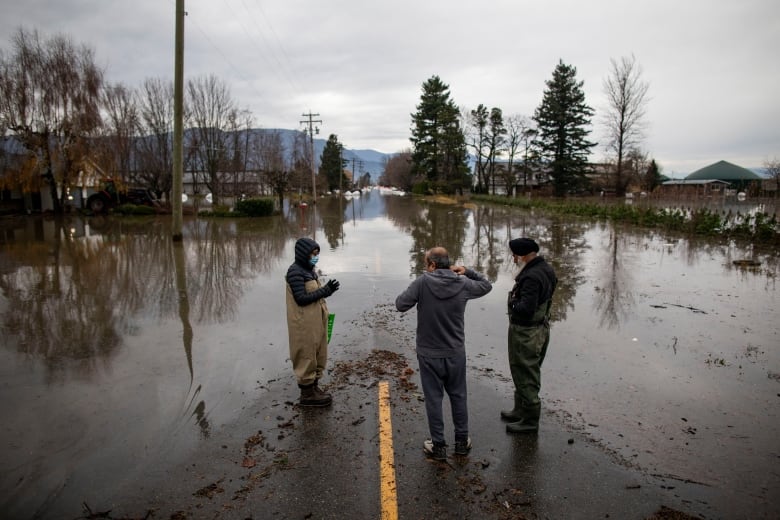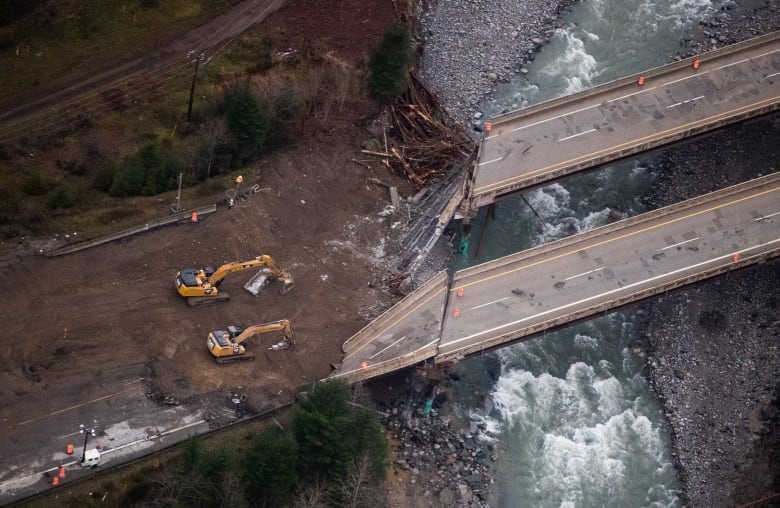By building in fire and flood zones, governments are still creating climate-change disaster risks, expert says
New provincial budget includes $2.1B to fund disaster recovery efforts

A disaster expert who led recovery teams after the devastating 2004 earthquake and tsunami in the Indian Ocean says British Columbia's climate response strategy must protect the province from future environmental events.
The B.C. government introduced a plan this week that recognizes the forces of climate change are driving threats facing communities. Butthe province must do more than implement recovery programs, said Prof. Jean Slick, who heads the disaster and emergency management program at Royal Roads University in Victoria.
"B.C. is a leader in being able to come out so directly in addressing the whole issue of recognizing how climate change is interwoven with the kinds of threats we face, in particular flood and fire,'' she said in an interview.
However, she said governments are still allowing people to build on flood plains or in fire zones.
"What we really want to see going forward is that we take action to stop creating disaster risks," Slick said.

$2.1Brecovery fund
Finance Minister Selina Robinson said the B.C. budget tabled this week includes $2.1 billion to fund disaster recovery efforts and future responses to the threats posed by wildfires, floodsand heat waves.
The three-year climate fund will support ongoing disaster cleanup and rebuilding in southern B.C. communities hit by last November's floods and mudslides, she said.
The heavy rains resulted in floods that deluged farming operations in the Fraser Valley, forced evacuations in Merritt and Princeton and crippled major rail and highway routes. The village of Lytton was destroyed last June in a fire that occurred the day after the village posted the highest recorded temperature in Canadian history.
Robinson and three other New Democrat cabinet ministers attended a news conference Thursday to provide more details of climate recovery and response initiatives funded in the budget.

Public Safety Minister Mike Farnworth said Emergency Program Act funding will increase to $436 million from $36 million to support flood recovery costs and response activities that include debris removal, cleanup and dike repairs.
The B.C. Wildfire Service will become a year-round firefighting and risk mitigation operation that will add people and equipment to focus on prevention and response services in wildfires and other emergencies, he said.
Prepare and protect
The climate strategy also includes a $120-million fund to assist communities and First Nations with emergency preparedness and mitigation, said Farnworth.
"It's also important to note that the challenges we've faced over the recent years, the consecutive wildfires and flooding events and the COVID-19 pandemic have disproportionately impacted Indigenous communities and it is critical we work side-by-side and in partnership with First Nations to advance reconciliation by improving emergency management supports,'' he said.

Environment Minister George Heyman said the budget includes money to expand the River Forecast Centre and flood plain mapping program to provide communities with more timely and accurate weather information and to help identify areas where dikes and other protections should be strengthened or located.
"It's not enough to react,"Heyman said. "We need to be able to predict. We need to be able to prepare and we need to be able to invest.
"The message is absolutely clear: we're not waiting another decade or two to see the impacts of climate change.''












_(720p).jpg)


 OFFICIAL HD MUSIC VIDEO.jpg)
.jpg)



























































































